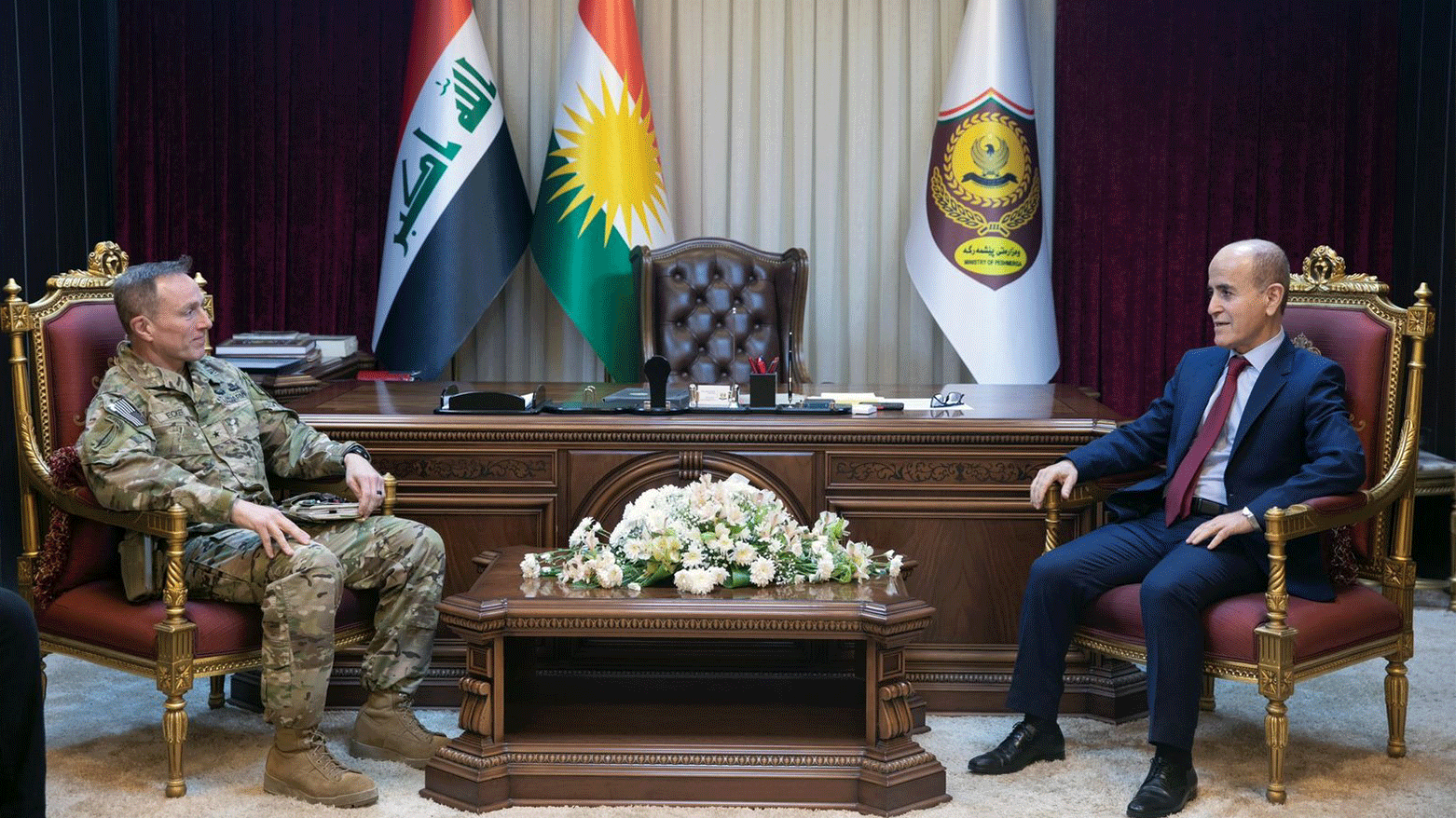Peshmerga minister, Coalition commander discuss reforms and unification

ERBIL (Kurdistan 24) - Shorish Ismail, the recently returned Kurdistan Regional Government’s (KRG) Minister of Peshmerga Affairs, on Thursday met with Coalition Commander General Michael Ecker.
The minister expressed gratitude for the support from the US-led Coalition.
For his part, Gen. Ecker assured continued assistance in the fight against ISIS. Additionally, he stressed the importance of reforms and nonpartisanship, which has long been the subject of criticism by international partners, viewing the Peshmerga’s faction-based allegiance as a foundational problem.
The visit by Gen. Ecker is part of a multi-faceted military delegation spearheaded by US Central Command General Michael Erik Kurilla, who visited Iraq and Syria Dec. 13-14. In Iraq, Gen. Kurilla visited both Baghdad and Erbil, where he met with several senior officials, including Iraqi Prime Minister Mohammed Shia’ al-Sudani.
On Nov. 27, Shorish Ismail returned to his post as Peshmerga minister after a year-long absence, reportedly due to internal Patriotic Union of Kurdistan (PUK) disputes, something the party has refuted.
Unifying and modernizing Peshmerga forces are at the “core” of the reform program of the Ninth Cabinet, senior KRG officials have said on many occasions. The specific battalions that have been unified are Units 70 and 80, with the former traditionally being associated with the PUK, while the latter is under the command of the Kurdistan Democratic Party (KDP).
More than a thousand Kurdish troops were killed in the fight against ISIS over a tense three-year period beginning in the summer of 2014. While the terror group was pronounced territorially defeated in Iraq in 2017, it has survived by setting up hideouts across the country, launching guerilla warfare and “hit-and-run” style attacks on Kurdish and Iraqi forces.
The @KRG_MOPE Minister received the Commander of the #Coalition Forces in #Iraq & #Syria, cooperation, coordination between the two sides & the @KRG_MOPE reform process were discussed. The MOP Minister also praised the role of the Coalition & the US in supporting #Peshmerga. pic.twitter.com/Og0B79j3Dw
— Ministry of Peshmerga (@KRG_MOPE) December 14, 2023
